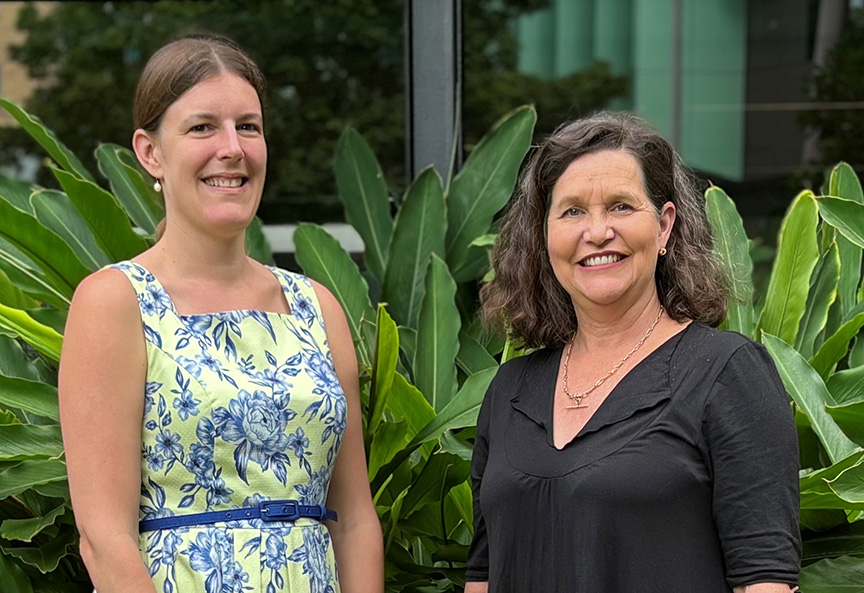
Teenagers with food allergies could benefit from improved treatment options thanks to investigations by Children’s Health Queensland (CHQ) researchers.
Associate Professor Jane Peake, Head of the Queensland Paediatric Immunology and Allergy Service (QPIAS) at the Queensland Children’s Hospital (QCH) will partner with The University of Queensland’s (UQ) Associate Professor Jennifer Koplin to lead a team working with adolescents and their families to better understand and manage the impacts of food allergies.
The study aims to test young people’s food tolerance and see whether their childhood food allergies have resolved and if not, ensure they have strategies to manage their allergy with confidence into adulthood.
Associate Professor Jane Peake said standard care has been to continue to avoid the food into their adult lives.
“We started to explore alternative testing and treatment options and were surprised to find doing an oral challenge to the food in hospital (an 'exit challenge') prior to leaving paediatric care, many were no longer allergic,” she said.
“For adolescents, carrying the burden of allergies into adulthood can cause anxiety and require ongoing medical expenses for the rest of their lives. It’s a crucial time to ensure adolescents have the best possible understanding of their food allergy and management long term.”
16-year-old Braidyn Polich had his first allergic reaction to nuts at 13 months old and has been treated at the QPIAS since he was two.
He and his mother Penelope Polich welcome the research and more information about allergy management for those around his age.

Penelope Polich said: “In starting the exit challenges, some reactions showed up on Braidyn’s skin prick tests, while the oral test was fine. This shows firsthand how important it is to continually investigate, as allergies can change and develop as we get older.”
Braidyn Polich said: “As I’ve had these exit tests, I’m getting the freedom to eat foods I couldn’t eat in the past without the worry that I’m going to end up in hospital. It’s nice to be able to eat without checking, or forever having to worry about ingredients or what might have been included in meals.”
“The more I know the better I am able to manage my allergies.”
The research team includes experts from UQ, CHQ, Murdoch Children’s Research Institute, Perth Children’s Hospital, Queensland University of Technology (QUT) and the University of Melbourne.
The study has been awarded almost $1.2 million from the National Health and Medical Research Council (NHMRC) Clinical Trials and Cohort Studies Grant scheme.
See the full UQ researcher secures funding to improve outcomes for young people with food allergies media release.